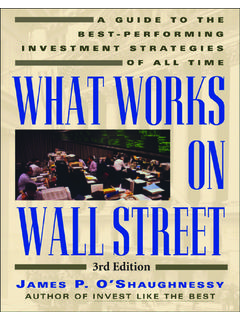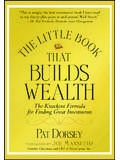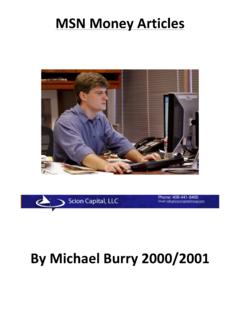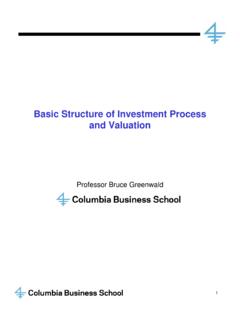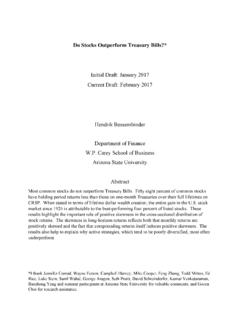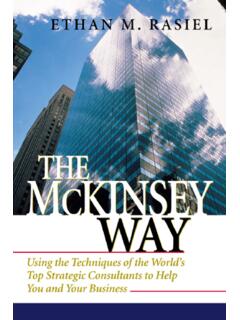Transcription of THE MEDIA BUSINESS; Whittle Communications' Fall …
1 Christle Whittle : Bad Management Page | 1 THE MEDIA BUSINESS THE MEDIA BUSINESS; Whittle Communications' Fall Is Dissected By STUART ELLIOTT Published: October 24, 1994 The financial difficulties that prompted the collapse of the Whittle Communications Corporation, the once high-flying alternative MEDIA company led by the entrepreneur Christopher Whittle , were significantly more severe than previously believed and were masked in part by accounting misrepresentations, according to an article in the new issue of The New Yorker magazine. The article also reported that Benno C. Schmidt Jr., the chief executive of the Edison Project, Mr. Whittle 's expensive effort to found a chain of privatized schools, recommended to the Edison board that Mr.
2 Whittle be removed as chairman. Mr. Schmidt, the former president of Yale University, declined yesterday to comment on Mr. Whittle . He preferred to discuss the Edison Project, which he said continued to represent "an interesting business opportunity," adding, "Our partners remain enthusiastic, and a number of new investors have expressed a strong interest." He declined to provide details. The New Yorker article, titled "Grand Illusion," was written by James B. Stewart, a former page one editor of The Wall Street Journal who is now a staff business writer at The New Yorker. The article is one of several coming post-mortems on Whittle , which is based in Knoxville, Tenn. The company has sold or closed virtually all its operations.
3 GQ and Vanity Fair magazines are also preparing articles on Mr. Whittle 's rise and fall. "The amazing thing is he escaped serious scrutiny for so long," Gary Belis, Whittle 's former MEDIA relations director, said yesterday. Christle Whittle : Bad Management Page | 2 "Chris Whittle had a remarkable ability to get smart people to do stupid things," added Mr. Belis, who left Whittle late in 1991 and is now corporate publicity director at Wenner MEDIA in New York. The article reports that Whittle Communications failed to pay state personal property taxes on the hundreds of thousands of videocassette recorders and television sets used for Channel One, its controversial sponsored newscasts for high school students, and failed to file returns in many states that impose such taxes.
4 The article estimated that Whittle may face more than $10 million in unpaid tax liabilities and penalties. Those liabilities were a reason that the K-III Communications Corporation, which agreed in August to buy Channel One from Whittle , has reduced the purchase price to $240 million from $300 million, the article said, and insisted on indemnification. Telephone calls yesterday to Mr. Whittle 's homes in East Hampton, , and Knoxville were not answered; his Manhattan phone number at the Dakota apartments is unlisted. Telephone calls to David Adler, a spokesman for K-III in New York, were not returned. Some previous articles about Whittle , particularly a report in the Aug. 22 issue of Business Week magazine, described serious financial problems with projects like Channel One and Special Reports, magazines and television programs for doctors' waiting rooms that were discontinued after sharp losses; the New Yorker article recapitulates some Business Week material like a decision by Time Warner to write off its entire $185 million investment in Whittle .
5 But The New Yorker article is perhaps the most detailed to date about Whittle 's finances, particularly what it described as "aggressive accounting practices" that resulted in "a significant overstatement of Channel One's revenue." The article said that when Channel One failed to sell all its commercial time, extra spots for advertisers like Mars Inc. and Pepsico were run and accounted for as current revenue, overstating actual revenue in one instance by nearly 20 percent. "Even inside the company, you were always trying to get a handle on what was real and what wasn't," Mr. Belis said yesterday. "The mantra was, 'Are these Whittle numbers or real numbers?' " In Business Week, Mr. Schmidt was quoted as saying that Mr.
6 Whittle "hasn't been involved at all in day-to-day activities" at Edison. Christle Whittle : Bad Management Page | 3 Edison might be "the greatest" of Mr. Whittle 's illusions, The New Yorker article concludes, because Whittle 's financial failings mean that "the likelihood at this juncture of major investors trusting their capital" to him "seems remote." "An even more fundamental drawback," the article states, "is that once the public-school administrators of America have absorbed the magnitude" of Mr. Whittle 's "failure with his other ventures, they are hardly likely to trust him with their tax dollars, let alone their children." Robert Hope, the former head of a Whittle unit, Whittle Events, who now operates it as Hope-Beckman in Atlanta, said yesterday: "What happened with Chris is pretty simple.
7 He bit off more than he could handle." -- Why Edison Doesn't Work Chris Whittle still dreams of transforming the nation's public schools--and making lots of money too. Good luck. By Brian O'Reilly With Reporting by Julia Boorstin December 9, 2002 (FORTUNE Magazine) The idea sprang fully formed from Chris Whittle 's mind about a decade ago, and it was a stunner: transform public education in America with a chain of 1,000 or more for-profit, privately run grammar schools and high schools, all crisply efficient and brilliantly designed, and all paid for with tax dollars and school vouchers. Entrepreneur though he is, this was no get- rich -quick scheme on Whittle 's part. Rather, the venture that came to be called Edison Schools--which currently runs 150 learning institutions in 22 states across the country--was a strange combination of idealism and opportunism, propelled by the idea that business could succeed where government had failed.
8 Alas, instead of the bold assault on bloated, corrupt, and failing school bureaucracies that Whittle envisioned, it has turned into a long, slow, bloody war, like Napoleon reeling through Russia, with few tangible successes, enormous controversy and resentment, and hundreds of millions of dollars in losses since the company opened its first school in 1995. Whittle , 55, who calls his CEO job "grinding," miscalculated how tricky and expensive it was to run a school. He expanded too far, too fast. He badly underestimated the suspicion and opposition he would arouse among parents, school boards, and school staff. As Edison's forecasts of huge leaps in academic achievement have failed to occur, a wave of unhappy clients has begun to terminate contracts with the company before expiration.
9 Edison stock, which hit nearly $37 a few years ago, now trades at less than $2. Though Edison posted record revenues of $525 million last year, it also had record losses of $86 million, and it carries a heavy $160 million debt load. " Whittle was never willing to be a niche player," says Christle Whittle : Bad Management Page | 4 Dan Quinn, an analyst at Morningstar. "He wanted to be king of the world. Now it's all come collapsing around them. I don't know where they're going to get the money to pay off their debt." We can all agree that it would be great if Edison were a success. After all, few things in this country need improvement more than our public schools. But Edison has been in business for seven years now, and the verdict is clear: It doesn't work.
10 Education, in some form, has been in Chris Whittle 's blood from the beginning. His father, a doctor in rural Tennessee, was president of the local school board. While Whittle was at the University of Tennessee, he started a series of guides and magazines aimed at college students, which became the basis of one of his companies, Whittle Communications. At 32, he and a friend bought the venerable but ailing magazine Esquire. Later he launched a controversial ad-supported classroom television network called Channel One. As he visited innumerable schools to sell them on the network, Whittle became increasingly dismayed by what he saw: self-serving unions, uninspired administrators, ill-prepared students. All this could be fixed, he decided, with for-profit companies running public education.
